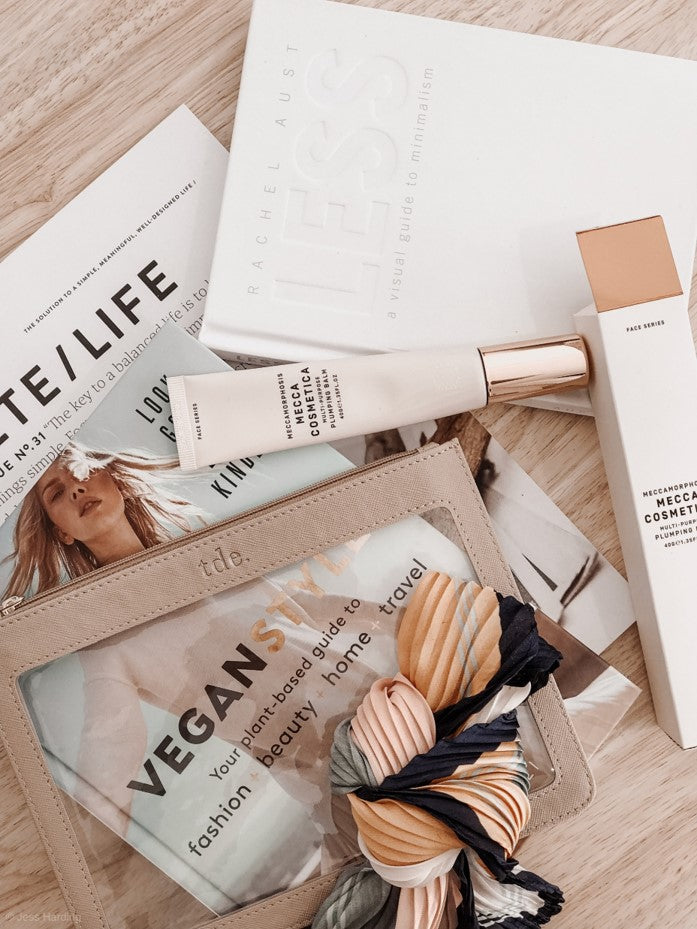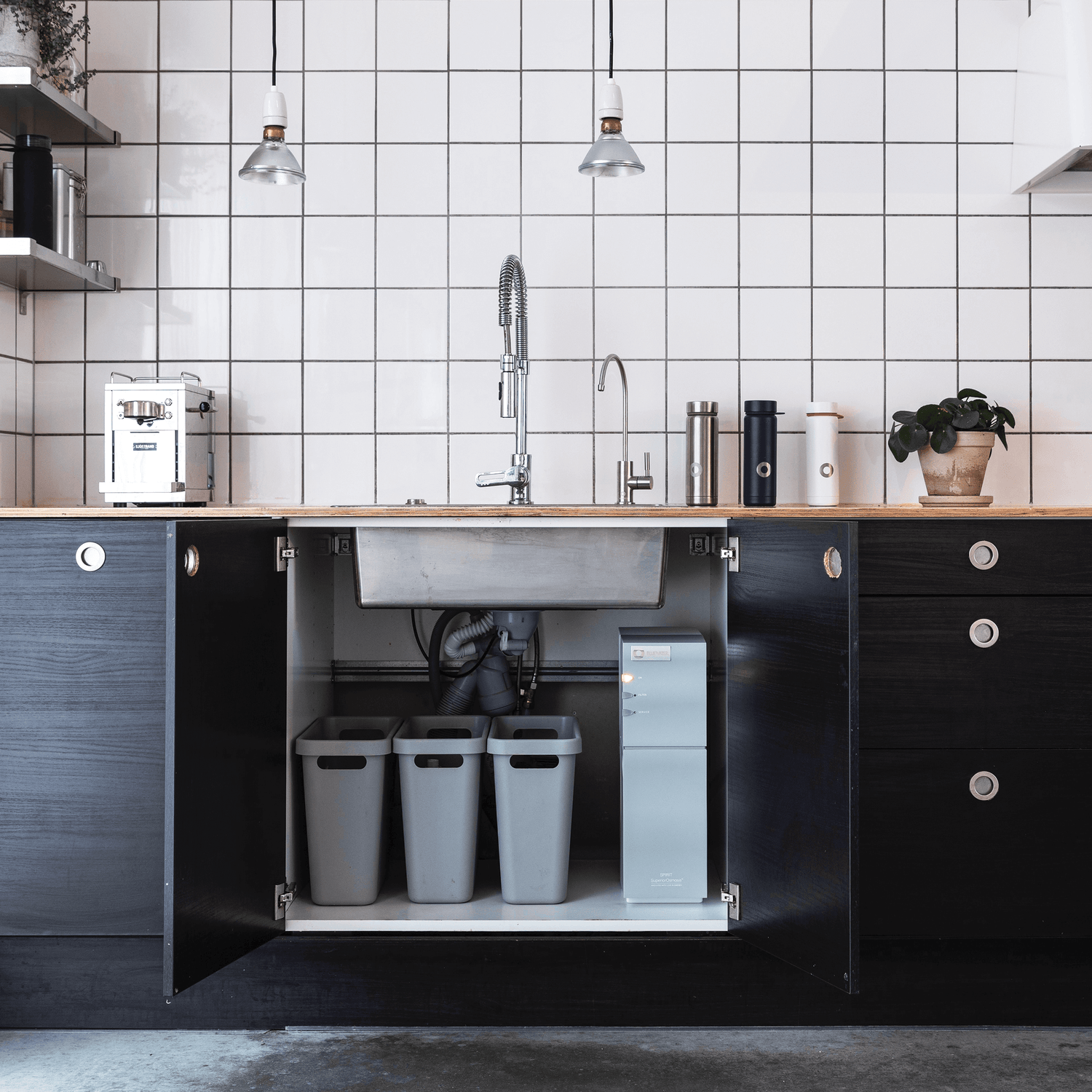Individually, the average person drinks around 182.5 gallons of water a year. Knowing this, it only seems natural to be concerned about the safety of the water you are consuming in your home. Now more than ever before, we hear about tap water containing lead, chlorine, and other toxins that are extremely harmful for us. Water filters, however, are one of the easiest ways to ensure that the water we drink in our homes is safe and toxin free.
The Negatives of Un-filtered Water
Unfiltered tap water in homes can run the risk of exposing yourself and your family to potential toxins that can be found in household plumbing and water. A high risk with unfiltered tap water is that there is a possibility that it can be lead contaminated mostly from older piping and other heavy metals like cadmium, mercury, and arsenic. In New York City, for instance, lead has not been used in piping since 1961, however in more recent years, Flint, Michigan experienced a water crisis as recent as in 2014. The crisis first occurred when the city switched from the Detroit Water system to the Flint River in an attempt to save money, however the water was not thoroughly tested and treated. When there are high levels of lead in the water, consuming it can have negative health effects such as brain, kidney, and nervous system damage and can also lead to learning and behavioral problems in children – resulting in the slowing down of the overall development of a child. The only way to know if your water is lead contaminated is to have it tested.
Newer piping is not necessarily the answer either because it is made out of PVC plastic. The problem with newer piping being made out of PVC plastic is that, when you use hot water the heat triggers phthalates to leach from the piping into your water. The ingestion of phthalates can have very negative effects on the brain such as the development of ADHD and behavioral problems. In an attempt to clean drinking water, water treatment facilities add ammonia to chlorine, creating chloramine. Ingesting chloramine can onset symptoms like a dry throat and skin reactions such as, itching, cracking, and even a burning sensation. When water has been tested for other reasons there has been proof of pharmaceutical contamination from waste water. Currently water treatment plans do not remove pharmaceuticals from drinking water.
Why Invest in a Drinking Water Filter?
Investing in a good drinking water filter has more benefits than simply removing toxins and improving the taste of your water, it is also extremely beneficial for the environment. Investing in a drinking water filter will ultimately help you decrease your pollution and daily plastic use from bottled water. Since a shocking 97.5% of drinking water is PFAS contaminated (PFAS is known as a forever chemical you can never detox from) and lead is found in the drinking water of 40% of homes, making the effort to make your water toxin free is crucial.
Other considerations include how environmental disasters affect drinking water. For example, chemical spills happen in transit and chemical waste is oftentimes inappropriately disposed of by large corporations. For example the unregulated chromium 6 chemical (a known carcinogen) contamination was made popular by the movie Erin Brockovich, but even recently, the EWG reported that still, 200 million Americans drinking water is contaminated with this deadly chemical. Also, studies have shown that recent forest fires happening throughout the country have polluted local water tables with various VOCs and even PFAS chemicals from flame retardants.
When considering a water filter, you can check to see if it is NSF-certified. If the filter is NSF-certified, you will then be able to go to the NSF databases and see what chemicals the water filter is protecting you against. The EWG Tap Water Database is a great resource to utilize before deciding on what water filter you think would be best for you. Since filters range from reverse osmosis filters to multi stage carbon filtration filters, it is important to remember that they do not all perform at the same level. Interpreting what kind of filter would work best for you depends on what contaminants are in your water. This is where EWG’s Tap Water Database can be a tremendous help, on the site you simply put in your zip code and then you will get a list of all the contaminants in the water for your area.
Best Drinking Water Filters
1. AquaTru

Photo by: AquaTru
AquaTru is a reverse osmosis water filter and has a variety of filters you can choose from when deciding which one would be the best investment for you. AquaTru Countertop Water Purifier, AquaTru Connect, and AquaTru under Sink, are the three reverse osmosis water filter purifier options to choose from. Homes that have contaminated water commonly do not know it unless they have their water tested by a third party. The relief of knowing that yours and your families drinking water is safe is what makes investing in an AquaTru filter worth it. It cleanses your water of PFAs, fluoride, arsenic, lead, chlorine, and nitrate. AquaTru is NSF certified and has been tested and proven to remove more contaminants than an RO filter. The AquaTru Countertop Water Purifier is the best and most user friendly option of all the options AquaTru offers. The Countertop Water Purifier requires no installation or plumbing, therefore upon purchasing you can easily start using it right away. It takes around twelve to fifteen minutes in order to filter 1 gallon of water. It is also extremely simple to change the water filter. The one drawback of an AquaTru filter is that the container is made from plastic making it unsustainable. The plastic used for the filter is however BPA and BPS free and potential leaching is minimal since the water is not heated.
2. Berkey

Photo by: Berkey
The Berkey is a pour through filtration system that sits on your countertop. Berkey has a wide range of water purification products to select from. Their best seller is the Big Berkey Water Filter. It is stainless steel and holds up to 2.25 gallons or 8.5 liters of water. Many of Berkey’s products including the Big Berkey Water Filter comes with a lifetime warranty. Envirotek Laboratories, INC. tested what chemicals exactly a Berkey water filter can remove from your households’ water. The results came back that it was successful in removing heavy metals, pharmaceuticals, pesticides, and chloramines. The lab also found that Bisphenol-A, an endocrine disruptor that is found in plastic water bottles, was removed 99.9% efficiently when water from a plastic bottle was poured into a Berkey Water Filter. The Big Berkey Water Filter is made from 304 stainless steel and one of the more aesthetically pleasing water filter options. Not only will it look pretty on your countertop but it can hold up to 2.25 gallons of water at a time. The Big Berkey is an easy setup and can be used for indoor or outdoor activities. This water filter's versatility makes it a great choice for anyone.
3. RKIN

Photo by: RKIN
RKIN water systems offer both a zero-installation countertop water purification system, as well as an under the sink water purification system. If considering their countertop system, you have the choice of “Space Black” or “Silver White”. As well as the choice of the “AlcaPure for Alkaline pH'' edition, which returns Magnesium and Calcium minerals to the water. There is also the “OnliPure for Zero TDS” edition, which brings TDS levels down to a zero. RKIN is certified by NSF/ANSI 58 for the removal of lead, fluoride, PFOA/PFOS, TDS, trivalent chromium, and hexavalent chromium. The countertop water purification system is RKIN’s most popular product and is rated five stars. Within just fifteen minutes, you will have ½ gallon of clean and pure drinking water. The great thing about this water filter is that it can easily work in any kind of home from an apartment to a house.
4. Aquasana

Photo by: Aquasana
Aquasana’s Clean Water Machine filter removes up to 99% of contaminants in your water. It removes precisely 99% of asbestos, cysts, and lead, 97% of chlorine and chloramines, 96% of mercury, as well as 95% of PFOA/PFOS and VOCs. Aquasana’s Clean Water Machine is certified by NSF/ANSI. The filter can hold up to 300 gallons of water or 64 ounces at a time. The Clean Water Machine is a countertop drinking water filter. It requires zero installation and makes getting clean drinking water for yourself and your family easy. The Clean Water Machine is most certainly an investment worth making since it lasts up to 7.5 times longer than the average water pitcher filter.
5. Aarke

Photo by: Aarke
Aarke’s water filter pitcher is a great option for anyone looking for a filter made from sustainable materials. It is made plastic free and is made from glass, BPA-free thermoplastic stainless steel, and the detachable bumper is made from food grade silicone. The pitcher comes with a refillable steel filter cartridge, as well as a refill bag of Pure filter granules. Pure filter granules are poured into the purifiers filter and they reduce the presence of heavy metals and chlorine in your water. New filter granules should be added to the filter every 4 weeks. The Aarke water filter pitcher filters at a rate 3-5 min per liter, and has a total capacity of 2,36 liters at a time (10 cups).
Water filter systems are an investment in your family’s future. The health and wellness of your loved one’s is priceless. Protecting them from harmful water contaminants improves their health and future health. Small actions that you can do today, like purchasing an eco-friendly water filter, impacts your tomorrow. Why would you not invest in a water filter?
Sources:
- https://www.consumerreports.org/water-filter-pitchers/things-to-know-about-water-filter-pitchers-a2385261293/
- https://www.healthychildren.org/English/safety-prevention/at-home/Pages/Lead-in-Tap-Water-Household-Plumbing.aspx
- https://watertalks.csusb.edu/how-much-water-do-people-use
- https://www.cdc.gov/niosh/topics/lead/health.html
- https://www.cdc.gov/healthywater/drinking/home-water-treatment/water-filters/step3.html
- https://www.watercare.co.uk/filtered-tap-water-the-benefits/.
- https://www.cdc.gov/healthywater/drinking/home-water-treatment/water-filters/step3.html
- https://aquatruwater.com
- https://www.usaberkeyfilters.com/products/big-berkey-water-filter/
- https://theberkey.com/pages/test-result
- https://rkin.com/products/zero-installation-purifier-countertop-reverse-osmosis-water-filter
- https://www.aquasana.com/countertop-water-filters/clean-water-machine/black-100348638.html
- https://www.epa.gov/dwreginfo/basic-information-about-chloramines-and-drinking-water-disinfection
- https://www.chloramine.org/chloraminefacts.htm
- https://www.health.harvard.edu/newsletter_article/drugs-in-the-water
- https://www1.nyc.gov/site/dep/water/lead-in-household-plumbing-faq.page
- https://www.aarke.com/us/water-purifier
- https://www.ewg.org/tapwater/
- https://www.cdc.gov/nceh/lead/prevention/health-effects.htm
- https://www.nrdc.org/stories/flint-water-crisis-everything-you-need-know
- https://www.ewg.org/research/erin-brockovich-carcinogen-tap-water-more-200-million-americans
- https://www.hydroviv.com/blogs/water-smarts/wildfires-and-water-quality/











